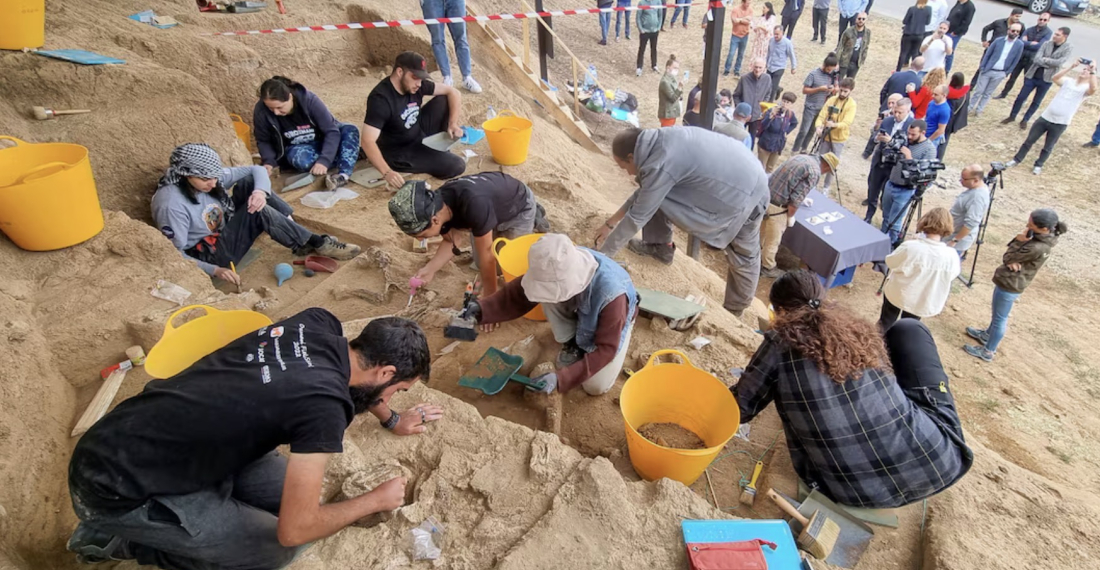Archaeologists in Georgia have discovered a 1.8-million-year-old human jawbone. The remains of a sabre-toothed tiger, an elephant and a giraffe were also found. Scientists hope that this discovery will help them to learn more about the first humans to leave Africa.
The remains were found near the town of Orozmani, close to the Armenian border. The jawbone belongs to Homo erectus, an ancestor of modern humans. According to Reuters news agency, archaeologists also found stone tools from the same period in the vicinity.
Alongside human remains, they found fossils of animals, inkleding a sabre-toothed tiger, an elephant and a giraffe. These species were still living in the area at that time.
Researchers hope that these finds will help them to learn more about how early humans developed after leaving Africa. They also want to find out what they ate and what the climate was like at that time.
The Orozmani site has yielded many Homo erectus remains. Previously, skulls and teeth had already been found there. "Every time you dig 5 centimetres deeper, there's a good chance you'll find something else," says one of the archaeologists involved in the dig.







